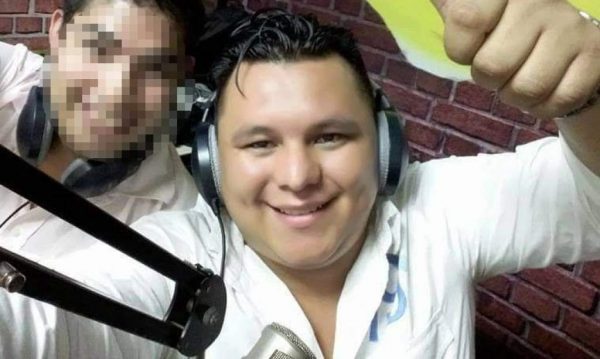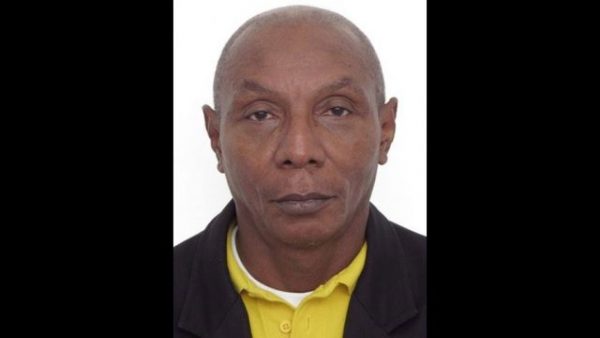Government officials including the minister and deputy minister of the Environment and Natural Resources (MARN) and senior officials of the National Civil Police (PNC) have attempted a cover up of police brutality that resulted in the death of 27-year-old human rights defender Carlos Maaz Coc.
Amid government claims of civil unrest, and despite the fact that there was little evidence of violence in the area, police deployed tear gas and rubber bullets to restore order which resulted in the death of Carlos in what was supposed to be a peaceful demonstration over mining issues in El Estor, Izabal, Guatemala.
Carlos Maaz Coc was a member of the indigenous Maya-Q’eqchi’ people and an environmental and land rights defender. He was part of the Gremial de Pescadores Artesanales – GPA (Artisanal Fishermen’s Guild), which, with several other local organisations, works to protect the Maya-Q’eqchi’ people from adverse health effects caused by nickel mining activities which contaminate and pollute the lands in the El Estor region.
On 27 May 2017, the Guatemalan government unilaterally abandoned negotiations with GPA, which had been organised in an attempt to find a solution to the problems of the community caused by mining activities.
At approximately 3.00pm, the people of El Estor decided to conduct a peaceful demonstration by closing the road that leads to the mining facilities in the department of Alta Verapaz. The Ministry of the Interior ordered the deployment of the National Civil Police to the region. The disproportionate use of force by the riot police (NPC), including the use of rubber bullets, live ammunition, gas bombs and sound bombs, resulted in many injuries and led directly to the death of Carlos Maaz Coc.
Several Guatemalan officials, including the Minister of the Environment, Sydney Samuels, have now publicly denied that a killing took place.
In 2006, the Guatemalan government issued mining licenses to the Compañía Guatemalteca de Níquel – CGN (Guatemalan Nickel Company), owned by the Canadian company HudBay Minerals Inc. The government failed to inform or seek permission from the El Estor indigenous people, a requirement stated in the International Labour Organization Convention 169. The mining in the surroundings of Lake Izabal has caused its contamination by toxic metals, such as nickel, chromium and cadmium. This has endangered the human rights and well-being of the indigenous communities who use the lake for fishing and as their main source of fresh water.
The Guatemalan government has continuously failed to comply with international and national legislation and judicial decisions to respect the rights of indigenous communities.
Front Line Defenders has previously reported on violations against indigenous and land rights defenders in the country. On 4 February 2017, Abelino Chub Caal, an indigenous Maya-Q’eqchi’ defender, was detained and falsely charged with aggravated land grabbing, arson, coercion, illicit association, and belonging to illicit armed groups. He remains in detention as he waits for his case to be judged. On 17 September 2016, shots were fired outside the home of Angélica Choc in El Estor, where she slept with her two children. The next morning, the human rights defender discovered at least four shots had been fired at the wall surrounding her home. Angélica Choc and 12 other plaintiffs sued the company Hudbay Minerals and its Guatemalan subsidiary CGN in Canada in an unprecedented effort to bring justice to their Maya-Q’eqchi’ community.
In 2011, Rodrigo Tot, president of the Agua Caliente community in El Estor and winner of the 2017 Goldman Environmental Prize, filed a lawsuit against the government of Guatemala to prove the community’s ownership of the land. Despite the fact that several pages of the official land registry were intentionally removed, the Guatemalan Supreme Court ruled in favour of the communal ownership of land for the Agua Caliente community, thus reaffirming the necessity for the state to seek the approval of local communities before issuing mining permits on their land which could violate their human rights. The government has not complied yet with the decision.
Front Line Defenders condemns the killing of human rights defender Carlos Maaz Coc, as well as the disproportionate use of force by the Guatemalan authorities against peaceful protesters in El Estor. Front Line Defenders is also deeply concerned at public declarations made by authorities denying the killing.



